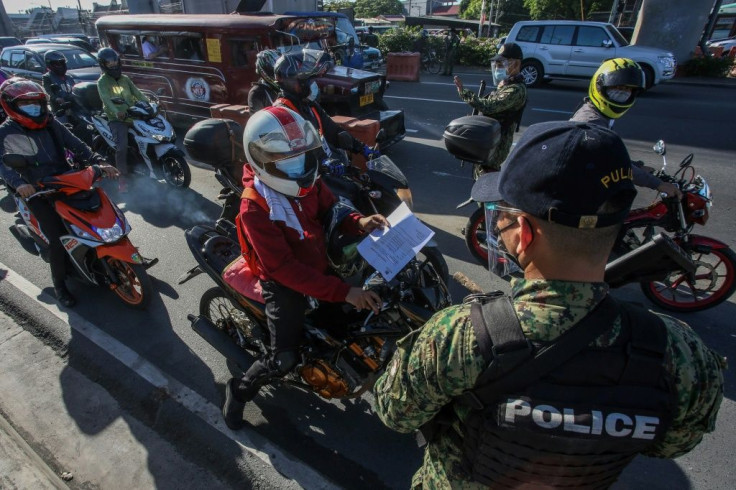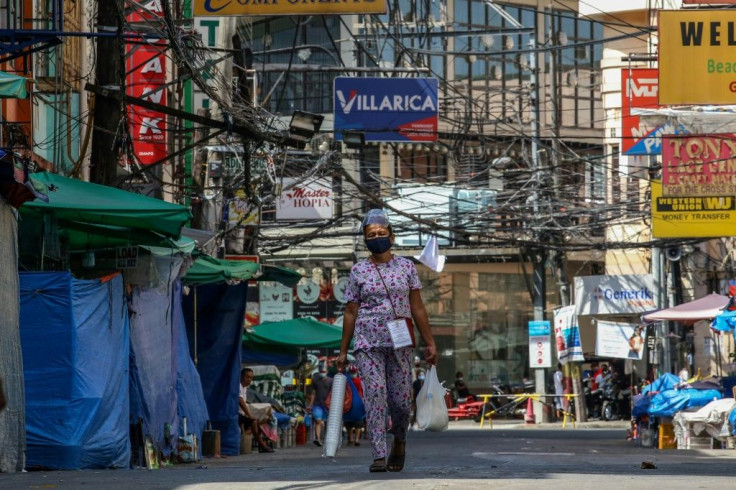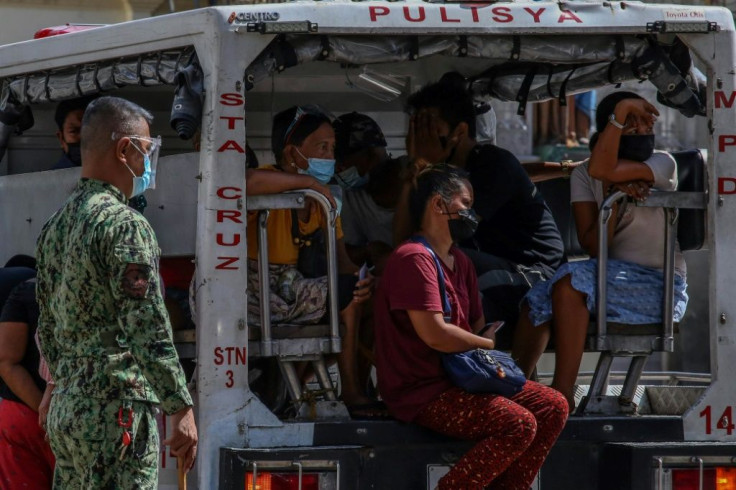Philippines Locks Down Economic Hub To Fight Coronavirus Surge
More than 24 million people in the Philippines' economic hub entered a lockdown Monday, as officials warned the week-long restrictions could be extended if coronavirus infections do not fall.
People have been ordered to stay home unless they are essential workers as Metro Manila -- the national capital region -- and four neighbouring provinces struggle to curb a surge that has strained hospitals.

Only hours into the latest lockdown imposed on the region -- which accounts for around half of the country's economic activity -- the health department's epidemiology chief Alethea de Guzman warned it could be prolonged to bring about a "sustained" drop.
"All options are open," said Defence Secretary Delfin Lorenzana, who chairs the government's Covid-19 task force.

More contagious variants of the virus have been blamed for the record spike that has taken the country's caseload to more than 720,000.
Traffic was backed up for hundreds of metres at checkpoints on major avenues in the capital Manila early Monday as police tried to ensure only essential workers were travelling.
But AFP reporters saw officers periodically open up the roads to ease congestion.

"It's difficult since it's no work, no pay," said July Calma, as she walked home after trying to pay her water bill but finding the office closed.
"We don't (have savings) because we spend it every day."

The tighter restrictions affect a fifth of the country's population.
Church services and other mass gatherings are banned, a 6:00 pm to 5:00 am curfew is in force and public transport has been reduced.
Supermarkets, pharmacies and other essential businesses are allowed to operate, and outdoor exercise is permitted.
The lockdown was announced Saturday by presidential spokesman Harry Roque, who initially suggested public transport would be halted.
A previous months-long lockdown crippled the Philippine economy, cost millions of jobs and left many households hungry.
Roque said the decision to tighten restrictions again was "very delicate" and acknowledged extending the lockdown could lead to more people dying from hunger and non-coronavirus illnesses.
Budget Secretary Wendel Avisado said assistance would be available for nearly 23 million people under lockdown -- almost everyone affected -- but did not offer details.
A growing number of hospitals in the capital are reporting that their Covid-19 beds are full.
Several health workers have told AFP in recent days that a shortage of beds and nurses was forcing some facilities to turn away patients.
"We now know how to treat them (Covid-19 patients). Bed capacity is the problem," said anaesthesiologist Grace Quiambao.
© Copyright AFP 2024. All rights reserved.







